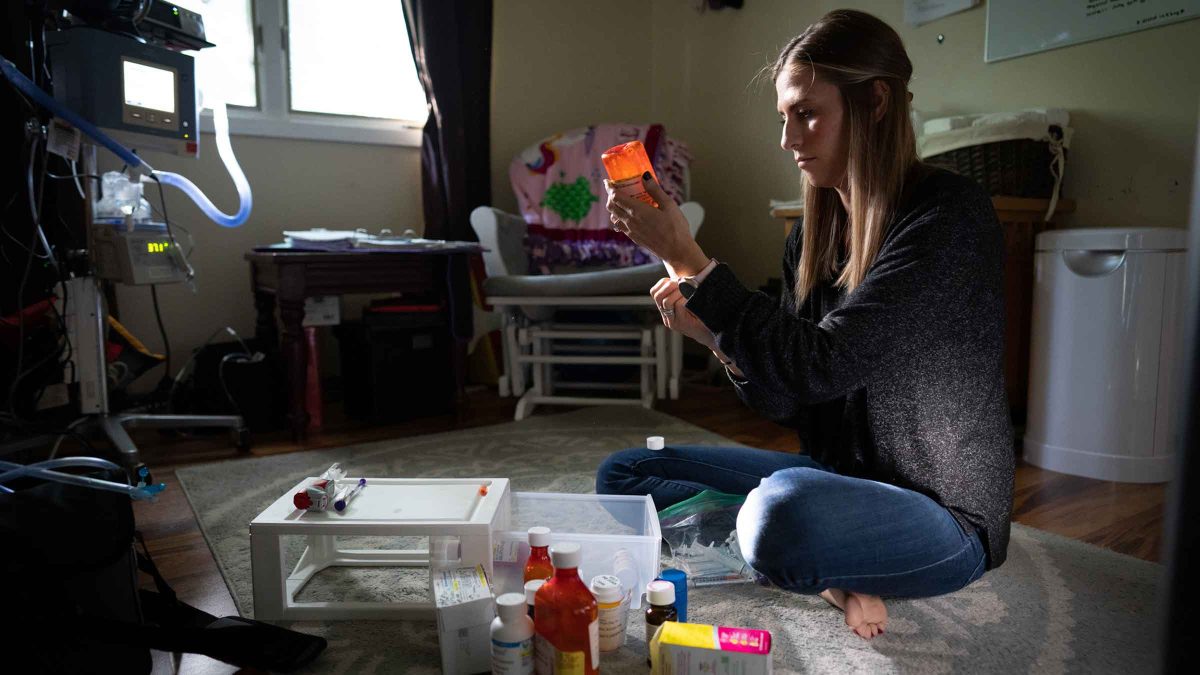The Importance of Managing Fatigue for Caregivers

CaringBridge Staff | 05.31.23
Caring for someone you love can be demanding and exhausting, especially if they suffer from a chronic illness or are elderly. Caregiving can range from assisting with daily tasks like cooking and cleaning to providing medical care and emotional support.
It will take a lot of mental, physical, and emotional energy, affecting the caregiver’s health. Carers commonly experience exhaustion, stress, and burnout, impacting their ability to provide care effectively.
Caregiver fatigue is a genuine concern that can have severe consequences for the carer and the person they are caring for.
This is why carers must recognize the signs of weariness and take steps to manage it. Caring for oneself is as important as caring for others, and caregivers must prioritize self-care.
What Is Caregiver Fatigue?

Caregiver fatigue is the exhaustion resulting from providing care to someone else. It can also impact the quality of care, leading to less attentiveness and patience. Symptoms of caregiver fatigue can include:
- Feeling overwhelmed, irritable, or anxious.
- Experiencing sleep disturbances.
- Chronic pain.
- Weakened immune system functioning.
Neglect or abuse can occur if exhaustion is not managed, making it crucial to prioritize self-care to avoid burnout.
Why Is Managing Caregiver Fatigue Important?
Caregiver fatigue can lead to physical and emotional exhaustion, impacting the caregiver’s health and the quality of care they provide. It can also cause mental health issues and increase the risk of chronic health conditions.
You can provide better care and avoid neglect or abuse by managing caregiver exhaustion. Attendants should prioritize self-care and seek support from friends and family to prevent burnout and provide the best care possible.
What Causes Caregiver Fatigue?
The physical and emotional demands of caregiving, the length and intensity of the caregiving role, and the lack of social support can cause caregiver fatigue. Providing care for someone can be a challenging and exhausting experience, as it often requires a lot of physical and emotional energy.
Caregivers may also need help to balance their caregiving duties with other responsibilities, such as work or family obligations, which can further contribute to exhaustion. Additionally, caregivers may feel isolated and unsupported, which can also lead to feelings of fatigue and burnout.
Tips for Managing Fatigue for Caregivers

To manage caregiver fatigue, prioritize self-care by planning activities that help you relax and establish healthy sleep habits. Seeking support from friends, family, or professional resources such as therapists and respite attendants can also help you manage exhaustion and avoid burnout.
Self-Care
You can prioritize your self-care by getting enough sleep, eating healthy, staying active, and engaging in activities you enjoy. Eating healthy and staying active can also help boost energy levels and reduce stress. Seek support from friends and family, or consider joining a support group to connect with others who are going through a similar experience.
Support System
Building and relying on your support system can help you manage your duties and reduce feelings of stress and exhaustion. One of the first steps to building a support system is identifying who you can turn to for help. This may include family members, friends, or even faith community members. Communicate with these individuals and let them know what support you need.
Support groups can provide a safe space to share your experiences with others who understand what you’re going through. Counseling can also be valuable for attendants struggling with stress, anxiety, or depression. There are also professional resources available.
Time Management
Prioritize your tasks and responsibilities, and make a plan for each day. This can include scheduling appointments, setting medication reminders, and other essential duties. Delegate responsibilities and ask for help when you need it. You can contact family members, friends, or professional carers to assist with transportation or meal preparation tasks.
Take breaks
Recognize that caregiving is a demanding and often stressful role, and taking regular breaks can help you avoid burnout and recharge your batteries. One way to do this is to break up your caregiving tasks into manageable chunks of time and take short breaks.
For example, you might take a 10-minute break to stretch or walk after completing a caregiving task. You could also schedule time for holidays throughout the day, such as during your loved one’s nap time or while they are watching TV.
Setting Boundaries
Setting boundaries means being clear about what you can and cannot do and prioritizing your needs and those of your loved ones. Remember that it’s okay to ask for help and to delegate tasks to others when possible. It can be challenging to say no to additional responsibilities, but taking on too much can quickly lead to exhaustion and overwhelming feelings.
Respite Care
Several types of respite care include in-home care, adult day care, and temporary stays in assisted living or nursing homes. In-home respite care involves a trained carer coming to the house and providing care to the care recipient while the primary caregiver takes a break.
Adult daycare programs are another option for respite care. These programs offer seniors a safe and stimulating environment while their attendants are at work or taking a break.
They often provide activities, meals, and medical supervision. Temporary assisted living or nursing home stays are also available for those needing a more extended break or planned absence.
Communication
Communicate regularly with healthcare providers, family members, and the care recipient to ensure everyone is on the same page and that the care plan meets the recipient’s needs.
Regular check-ins with healthcare providers can provide valuable information and support to help manage the care recipient’s health, which can help reduce the carer’s stress. Open and honest communication can help prevent resentment or guilt, help family members understand the situation, and provide support.
Taking Care of the Caregiver
It’s crucial to manage your fatigue for your health and the quality of care you provide to your loved one. You may experience physical and emotional exhaustion, increased stress, and decreased overall well-being. However, there are various strategies you can use to prioritize your physical and emotional well-being, including self-care, building a support system, effective time management, taking breaks, setting boundaries, and respite care options.
Remember to seek help and support when needed and prioritize taking care of yourself. By using these strategies and prioritizing your well-being, you can avoid burnout and maintain your health and well-being.